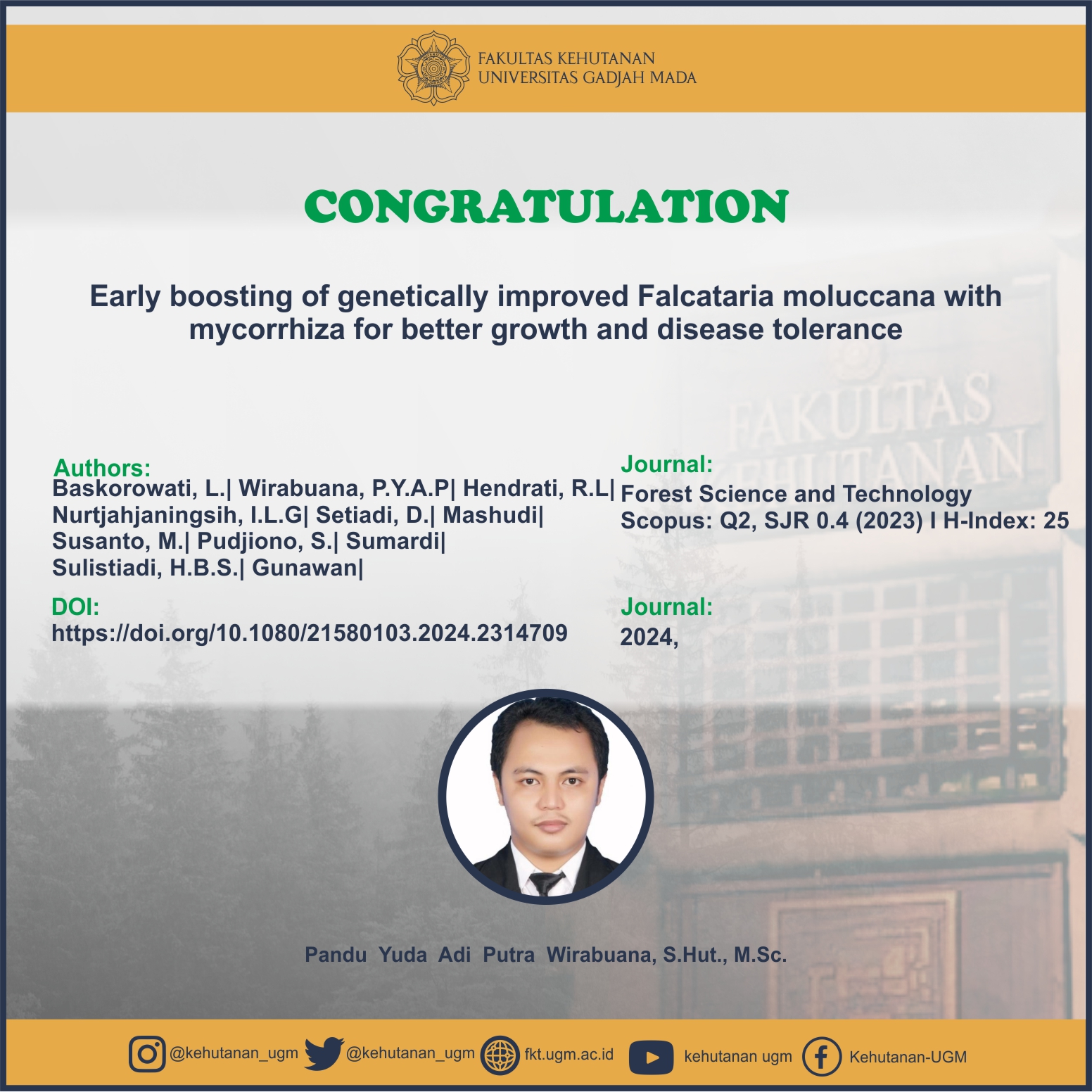
Abstract
Falcataria moluccana is a widespread species that grows rapidly in indonesia and produces timber used for carpentry. nonetheless, this species is especially susceptible to gall rust disease. to find plants that can handle rust, a mix of breeding with progeny experiments and forest management methods, like arbuscular mycorrhiza (am), were used. the point of this study is to find out if adding am changes how F. moluccana seedlings grow and how they react to gall rust disease, both those that have been improved and those that have not. We will also look at the response by calculating the area under disease progress curves (audpC) value for rust disease to grow in F. moluccana seedlings. the experimental design comprised four different treatments, including varying quantities of mycorrhizae, as well as four different seed sources. For the mycorrhizal inoculation experiments, there was a control group and three treatment groups. the treatment groups got 5, 10, and 15 g of mycorrhiza per polybag, respectively. the seeds used in this study were sourced from two unimproved families, namely Java and Solomon, as well as two genetically improved families, F63 and F77. this study revealed that mycorrhizal application affects the growth of F. moluccana seedlings and significantly reduces both disease incidence and severity. the application of mycorrhiza reduces the disease incidence and severity; the aupdC value of seedlings with mycorrhiza added is four times lower than that of seedlings without mycorrhiza. the disease severity was highest for the unimproved Solomon seedlings, despite the fact that the source of seeds had little impact on the disease incidence. meanwhile, the genetically improved seedlings demonstrated lower disease incidence and severity rates than seedlings without improvement, with an aupdC value nearly half that of the unimproved seedling. in terms of diameter and height, F. mollucana seedlings derived from various seed sources were remarkably diverse, and seedlings with improvements grew much better than seedlings without improvements. this study shows how arbuscular mycorrhiza affects how well improved and unimproved F. moluccana seedlings deal with gall rust disease.
SDGs:
1. SDGs 2:Zero Hunger
2. SDGs 4:Quality Education
3. SDGs 13:Climate Action
4. SDGs 15:Life on Land
Link Dokumen:
Download
